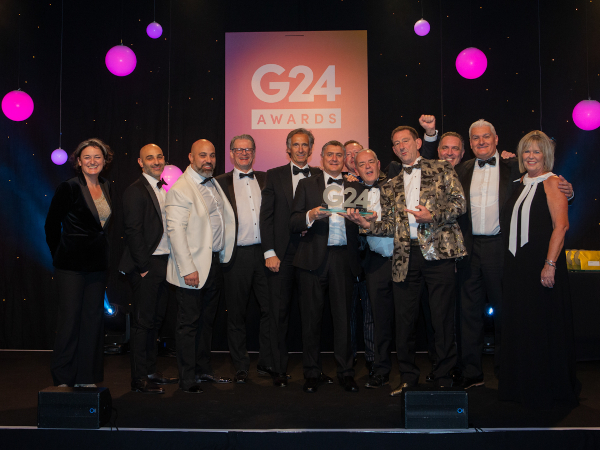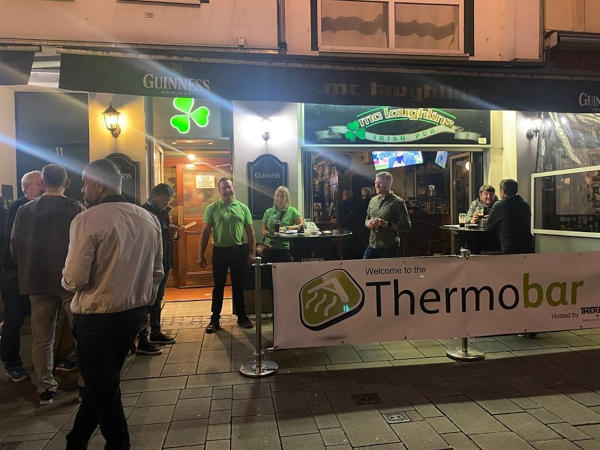Date: 22 February 2010
The EN1279 Euronorm for IG manufacturers allows for the ‘exchangeability’ of one brand of spacer for another one, so as long as a spacer is proven to provide the same or superior performance to the original test unit spacer, manufacturers can exchange products without the requirement for a re-test. This is the same for other IG unit components including sealant and desiccant. We currently supply over half of the UK’s spacer requirements in the form of aluminium tube. This tube is sold with full details of its technical composition and proven performance information which means that insulated glass (IG) manufacturers can assess it in line with the current brand of aluminium spacer they are using and exchange the brand for a similar or better performing product. Although we all agree that this system of ‘exchangeability’ must be regulated and controlled effectively to ensure that high standards of double glazing are encouraged and maintained, it ensures that the market remains open for new products. ‘Exchangeability’ will stop the market being dominated by a few organisations with plenty of available cash and big enough budgets to pay for hundreds of brand-specific tests. ‘Exchangeability’ also means that new products can be brought to market with the relative criteria proven by test data. This avoids component Manufacturers, IG manufacturers and window installers having to go through masses of red tape to change their products. The Window Energy Rating (WER) scheme doesn’t currently allow for ‘exchangeability’ because simulations are performed based on IG components of which many are stated as brand names rather than a given specification of a technical data and a minimum performance standard. This results in certain brands of WER products becoming successful because they have been included in more simulations than other products of equal or better technical composition and performance ability. This then leads to a crazy situation whereby a window installer cannot chose to install a superior product because it does not conform to his brand-specific WER. Aren’t Window Installers entitled to choose a better performing product for their money? There are many arguments for allowing ‘exchangeability’ of products which should be considered carefully. In particular, we must consider the fact that the financial stability of any suppliers into the IG market is not guaranteed. Over the past two years alone we have seen massive swings in exchange rates and commodity prices which have resulted in many seemingly solid businesses under-performing. Therefore, it makes sound business sense and encourages a more stable and competitively priced market to allow for some flexibility. Besides, if the marketplace changes very quickly to warm edge as legislation suggests, then no single supplier will have the capacity to meet demand. This will leave IG manufacturers no choice but to use whatever they can get. The public, who will not notice the subtle differences between spacers, will be none the wiser. Currently, WER scheme simulators are encouraged to use the branded products with the best performance figures to ensure that their customers can gain the highest possible Window Energy Ratings. Although the scheme is admirable in that it aims to improve the standards of double glazing in the interests of the homeowner, we’re concerned that it doesn’t seem to be working with IG businesses. Only 38% of IG manufacturers positive about the WER scheme We recently carried out a customer survey across our database of almost 2,000 IG manufacturers across the UK and only 38% of those who completed the survey were positive about the WER scheme. We also asked for their opinion as to whether they support the view that ‘exchangeability’ should be permitted in the WER scheme. Over 70% agreed that it should (the majority of the rest were undecided). Over 70% agreed that product exchangeability should be permitted Like many other suppliers into the UK window market, Thermoseal Group is planning to launch a new spacer tube (Thermobar) and several new products in 2010 which will have proven equal or higher thermal efficiency values than many of those currently available. However, operating under the current BFRC WER scheme guidelines, these products would have to be re-simulated by all users in all pre-registered WERs before they could be used. We suggest that products should be selected by WER scheme simulators based on key performance indicators with relative criteria proven by the technical composition and test data of the product. This will put an element of the decision-making process back into the hands of the IG manufacturer who has the real experience of making sealed units. It will also help to retain a competitive business environment for suppliers. As members of the GGF, we have invested a great deal of time and effort into attending many meetings around the UK so that we can join in the debates that we are assured will shape the future of our industry. So far there seems to be a lot of talking but the action remains to be seen. To comment on the points raised above click here to visit our blog. We welcome your views.
Mark Hickox, Sales Director at Thermoseal Group discusses the requirement for ‘exchangeability’ of products in the Window Energy Rating Scheme (WER) and his view that the WER Scheme still has a way to go before it can work to the advantage of the whole industry.
The EN1279 Euronorm for IG manufacturers allows for the ‘exchangeability’ of one brand of spacer for another one, so as long as a spacer is proven to provide the same or superior performance to the original test unit spacer, manufacturers can exchange products without the requirement for a re-test. This is the same for other IG unit components including sealant and desiccant.
We currently supply over half of the UK’s spacer requirements in the form of aluminium tube. This tube is sold with full details of its technical composition and proven performance information which means that insulated glass (IG) manufacturers can assess it in line with the current brand of aluminium spacer they are using and exchange the brand for a similar or better performing product.
Although we all agree that this system of ‘exchangeability’ must be regulated and controlled effectively to ensure that high standards of double glazing are encouraged and maintained, it ensures that the market remains open for new products. ‘Exchangeability’ will stop the market being dominated by a few organisations with plenty of available cash and big enough budgets to pay for hundreds of brand-specific tests.
‘Exchangeability’ also means that new products can be brought to market with the relative criteria proven by test data. This avoids component Manufacturers, IG manufacturers and window installers having to go through masses of red tape to change their products.
The Window Energy Rating (WER) scheme doesn’t currently allow for ‘exchangeability’ because simulations are performed based on IG components of which many are stated as brand names rather than a given specification of a technical data and a minimum performance standard.
This results in certain brands of WER products becoming successful because they have been included in more simulations than other products of equal or better technical composition and performance ability. This then leads to a crazy situation whereby a window installer cannot chose to install a superior product because it does not conform to his brand-specific WER.
Aren’t Window Installers entitled to choose a better performing product for their money?
There are many arguments for allowing ‘exchangeability’ of products which should be considered carefully. In particular, we must consider the fact that the financial stability of any suppliers into the IG market is not guaranteed. Over the past two years alone we have seen massive swings in exchange rates and commodity prices which have resulted in many seemingly solid businesses under-performing. Therefore, it makes sound business sense and encourages a more stable and competitively priced market to allow for some flexibility. Besides, if the marketplace changes very quickly to warm edge as legislation suggests, then no single supplier will have the capacity to meet demand. This will leave IG manufacturers no choice but to use whatever they can get. The public, who will not notice the subtle differences between spacers, will be none the wiser.
Currently, WER scheme simulators are encouraged to use the branded products with the best performance figures to ensure that their customers can gain the highest possible Window Energy Ratings. Although the scheme is admirable in that it aims to improve the standards of double glazing in the interests of the homeowner, we’re concerned that it doesn’t seem to be working with IG businesses.
Only 38% of IG manufacturers positive about the WER scheme
We recently carried out a customer survey across our database of almost 2,000 IG manufacturers across the UK and only 38% of those who completed the survey were positive about the WER scheme. We also asked for their opinion as to whether they support the view that ‘exchangeability’ should be permitted in the WER scheme. Over 70% agreed that it should (the majority of the rest were undecided).
Over 70% agreed that product exchangeability should be permitted
Like many other suppliers into the UK window market, Thermoseal Group is planning to launch a new spacer tube (Thermobar) and several new products in 2010 which will have proven equal or higher thermal efficiency values than many of those currently available. However, operating under the current BFRC WER scheme guidelines, these products would have to be re-simulated by all users in all pre-registered WERs before they could be used.
We suggest that products should be selected by WER scheme simulators based on key performance indicators with relative criteria proven by the technical composition and test data of the product. This will put an element of the decision-making process back into the hands of the IG manufacturer who has the real experience of making sealed units. It will also help to retain a competitive business environment for suppliers.
As members of the GGF, we have invested a great deal of time and effort into attending many meetings around the UK so that we can join in the debates that we are assured will shape the future of our industry. So far there seems to be a lot of talking but the action remains to be seen.
To comment on the points raised above click here to visit our blog. We welcome your views.







Add new comment